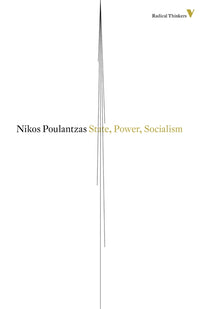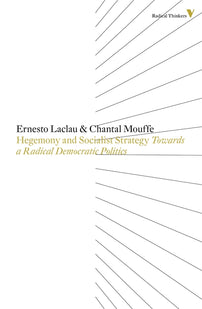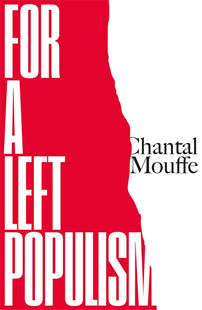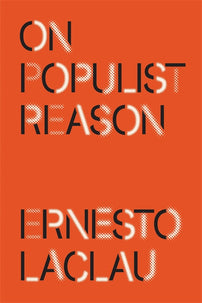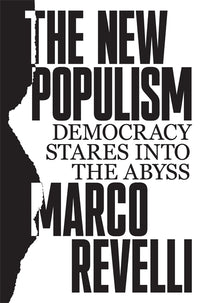Socialist strategy in the neo-statist moment
In the final installment of our roundtable on The Great Recoil, Paolo Gerbaudo responds to Gabriel Hetland, Carlo Invernizzi Accetti, and Anton Jäger and reflects on pandemic-era neoliberalism, neo-statism, and socialist strategy

Writing a “history of the present,” to borrow a phrase of French sociologist Alain Touraine, is a risky endeavour because it comes eerily close to an exercise in futurology or prophecy. Furthermore, this approach makes for an easy target of the wisdom of hindsight, especially if the future looks quite different from the one that was anticipated: just ask Francis Fukuyama. In politics, the future can never be guaranteed. As Machiavelli famously put it, events are always partly governed by chance and hence, unpredictable. Yet, reading in the present the seeds of possible futures is what public sociology and militant political science are compelled to do if they want to be not merely a documentation of the past, instructive as it may be, but also a lens through which to imagine possible future scenarios and strategic pathways.
The contributions to this roundtable evaluate the main theses of The Great Recoil – whether they offer a key to understanding the “spirit of the times” in the aftermath of the populist moment and the Covid crisis and capture coming social and political dilemmas. The authors who have participated in this discussion seem to agree that the idea of a “neo-statism”, which constitutes the book’s main thesis, has a purchase on the political present. The thesis can be summarised as follows: the disruptive effects of globalisation combined with health and environmental crises have led the public and policy-makers to re-evaluate neoliberal policies, and acknowledge the need for greater state intervention to protect and support society vis-a-vis growing systemic risks. Disagreement revolves around the extent of this transformation and, more urgently, its ultimate political and strategic implications.
A first point of contention is to what extent neo-statism is really new, as the prefix implies, and configures a wholesale departure from neoliberal dogma. As Anton Jäger highlights, the distinction between neoliberalism and Keynesianism has not always been that clear-cut in recent decades. Policy-making in Europe and the US has mostly taken hybrid forms. Keynesian measures were deployed alongside neoliberal policies to facilitate the progressive encroachment of the market in all areas of social and economic life. Furthermore, welfarism was often not geared at overcoming commodification but often contributed to its dominance. Finally, as Jäger puts it, neoliberal policies often contained their own implicit forms of “protection” under a market regime (home ownership, private pensions etc.).
The complex historical development of policy-making - and the way it sometimes contradict simplified narratives of political history, such as the shift from social-democracy to neoliberalism, or the opposition between Keynesianism and neo-classical economics - should always be accounted for, especially if we approach the question from the standpoint of economic history. Yet, from an ideological and discursive perspective, such as the one adopted in my book, the focus is on neoliberalism as a dominant ideology, a set of ideas, values and beliefs that despite all its complexity and ramifications displays some degree of coherence/cohesiveness and has become crystallised into an historical “consensus”, as expressed by the notion of the “neoliberal era”. My claim is that it is precisely at this ideological level that neoliberalism is caught in a crisis – one which is not just political but also epistemological. Neoliberalism has lost its hegemonic “unique thought” status. It is unable to explain, let alone project credible solutions to present economic and political crises.
Neoliberalism is now complemented if not altogether displaced by a neostatist discourse which in many ways projects an inversion of neoliberal dogmas, and which centers on notions of sovereignty, protection and control that concern the management of risks and threats. As it happens with any ideological transition this process is slow, uneven and always incomplete. This is certainly not the end of liberalism in any way or form, nor obviously the end of capitalism. Rather it is best understood as a trend that reflects the emergence of a new logic of capitalism, perhaps a more “public capitalism” as Jäger quips.
Another question regards the political content of neo-statism. Jäger rightly cautions that despite the huge price-tag Biden’s bills will still be delivered by private corporations. What we are witnessing in Bidenomics is a sort of “contractor state” whose interventionism is indirect: financing public works but leaving private companies to carry them out. The difference is apparent vis-a-vis Chinese statism where the state wholly or partly owns the “commanding heights” of the economy, including many companies involved in construction and transports. Yet, it is also evident that Biden’s economic policy reflects a change in attitude towards policy-making vis-a-vis the policies of his Democratic predecessors Bill Clinton and Barack Obama, including his embrace of state interventionism as a driver of the economy.
The sloganeering of infrastructure and infrastructure investment (including “soft infrastructure” such as education, health and social care) in Biden’s (and other world leaders’) policy discourse projects different priorities to those of the high neoliberal era. In the past, the fear was that excessive state investment would “crowd out” private investment. And in fact, public investment experienced a severe drop in the US and across Europe over the last forty years. Furthermore, fear of climate change is only likely to grow in coming years, with extreme weather events becoming more visible. The projected dismal effects of climate disaster on the economy are too big to be ignored by some sections of the capitalist class. This condition is likely to offer more leeway during the 2020s for deficit spending on investment in climate transition policies and energy and transportation infrastructure than it was the case under the “austerity neoliberalism” of the 2010s.
It is true as Jäger comments that “the end result of this statist turn might also look frighteningly close to the UK’s COVID response: an uneasy continuation of the privatised state”. But what matters is that, for good or ill, the logic of capitalism is changing: in coming years corporations are bound to reorganise themselves around public procurement. This is particularly the case with the “green transition” which will require trillions of dollars in public investment every year as the International Energy Agency argues. Even if half of what is required to keep temperature rise below 1.5 degrees was achieved, it would mean a significant change in the economy and the role of the state in it.
[book-strip index="1" style="display"]Over the course of the 2020s, these trends are bound to significantly reshape the economy, making it more centered around state procurement and investment and the project of a “green transition”. In many circumstances, as seems to be the case with the US of Joe Biden, it may well end up being a “public-private protectionism” with little tangible gains for workers and citizens. But this new scenario also opens political opportunities for the left. Given that “escapism” (to cite Zygmunt Bauman) has been a favourite tactic for multinational corporations engaged in offshoring and relocations, a more bogged down, re-nationalised (in the sense of more centered on the national economy) and “home-sourced” capitalism could make a convenient target for mobilisations demanding a rise in wages and better public services.
Carlo Invernizzi Accetti’s contribution focuses more on the political strategy element of the book and in particular its criticism of contemporary liberalism. It is true that, as Invernizzi Accetti highlights, in certain countries the socialist left is encountering serious difficulties. The left populist wave of Sanders, Corbyn, Mélenchon and Iglesias, has come to an abrupt halt. But this left-populist insurgency has radically redefined the policy landscape and created new leaders that are bound to stay with us for years to come. A decade ago we were neither discussing taxes on the rich nor reversing globalisation’s race to the bottom in salaries and working conditions. If we now do, it is largely thanks to Bernie Sanders and protest movements such as Occupy Wall Street and the Gilets Jaunes which, over the course of the 2010s, denounced social injustice and called for a radical change in society.
This leads to the question of the left’s relationship to the neoliberal center. For Invernizzi Accetti, in attacking liberals, I am not “reckoning with the host.” In his view the only realistic way forward is an alliance between the left and the center under the aegis of a “liberal socialism”. I disagree with this view. One important message I wanted to get across is that the centre,these days, is the main rampart of defense of the status quo and that the left should have little delusion about its ultimate leanings.
Centrists-for-hire Krysten Sinema’s and Joe Manchin’s obstructionism to Biden’s social spending package in the US Senate unfortunately vindicates this. If the obstruction continues, the Democratic Party may well be heading for a crushing defeat in the midterm elections and even a return of Trump in 2024. Centrists in many other countries, who are fighting against a moderate rebalancing of the center-left towards a more progressive policy platform are further proof that in many cases “liberals are not your friends”.
The only liberal who deserves some praise is US president Joe Biden, who has accepted that, if it is to reclaim working class voters who have turned to the right, the center-left needs to move beyond Third Way policies, and adopt a progressive platform. Biden has certainly always been a moderate and a pragmatist but one with strong ties to unions. Since becoming president he has proposed plans that promise to improve social care, provide well-paid jobs in construction and manufacturing and accelerate post-carbon transition, that are quite different from the policies of Bill Clinton and Barack Obama and project what could be described as a “progressive liberalism” along the lines of Roosevelt and LBJ. For the left this is far from being satisfactory, especially given the way many of Biden’s promises have been radically watered down, including taxation on the rich and social programmes contained in the reconciliation bill, while subsidies for corporations have been given once again a free pass. However, the overall change in the policy climate should not be underestimated as purely a game of smoke and mirrors, but taken as a major political opportunity for the left to push for demands to reduce inequality and guaranteeing social and environmental security.
Finally Invernizzi Accetti raises questions about my treatment of freedom and civil rights, suggesting I show little interest in these questions. In fact, freedom is discussed in connection with sovereignty in Chapter 3, where I criticise the neoliberal narrative of “market freedom”. Against this, I advocate a republican notion of political or collective freedom, freedom that is grounded in democratic and republican institutions and is allied with, rather than counterposed to, the notion of equality. Sovereignty, protection and control are in this sense not in contradiction to freedom, and other revolutionary principles, but rather a foundational condition for “free life”, one which can only exist within a democratic state that gives citizens control over their collective destiny and protects the many against the prepotence of the few.
Further, it is not the case that I think that movements like Black Lives Matter are not important. They are a key part of contemporary popular struggles and carry not only claims for human rights that are being violated but also many democratic and socio-economic demands. Police violence against black people in the US is not a “single-issue” but rather a systemic issue, a symptom of their broader economic and political exclusion. In the passage Invernizzi Accetti refers to, I am rather criticising the distorted discourse of minority rights used by neoliberal economists, who pretend that the rich should be considered as some kind of protected group for being a numerical minority of the population.
Gabriel Hetland’s intervention addresses the ways in which my discussion of sovereignty, protection and control can inform left populist strategy. He argues that socialists should take seriously the insights presented in the book, about the need to reclaim state power and focus on corporations and the wealthy as a target of attack. However, he argues that the disregard for Latin American populism makes the book look like “a missed opportunity”. It is obviously true that Latin America has been a key site of development for left-wing populism. Many issues discussed in the book such as the democratic reclaiming of sovereignty have already been discussed in Latin America for decades and much can be learned from this history in understanding the contemporary political landscape.
[book-strip index="2" style="display"]However, the choice to focus on the US and Europe was deliberate and informed by considerations of convenience: a global analysis of the neo-statist moment would have been an insurmountable task. If anything, if that path had been pursued, a large part of the book would have had to be devoted to China and its current economic model which has been very successful and influential. In many countries in Latin America in fact we have seen similar trends to those experienced in Europe and the US, especially in terms of the rise of rightwing populist leaders as with Jair Bolsonaro in Brazil, whose case is discussed at different points in the book. However, a more comprehensive discussion of Latin America would have been beyond the scope of the volume. Work on the neo-statist moment in other world regions, and Latin America in particular, is a very urgent task to establish whether the “return of the state” can be generalised as a global trend.
All in all, the contributions to this roundtable raise questions that are likely to stay with us for many years to come. What form will state interventionism adopt in coming years and how will it be different from both neoliberalism and the social-democracy of yore? Will state interventionism simply serve as a means to protect existing concentrations of wealth and power or may it lead to a more egalitarian economic model? And finally what are the realistic pathways for a winning left strategy in these conditions? Do they lie in an alliance with liberals as Invernizzi Accetti suggests or a recuperation of the spirit of the populist moment as Jäger appears to propose? To these we may add a final and more burning question: will the mild progressive statism of the likes of Biden succeed? Or should we prepare for the dangerous prospect of authoritarian statism under a revived populist right of Trump and allies?
Ultimately, whatever the answer to these questions may be, the most important contribution the book wants to make to strategic debates is the one highlighted by Gabriel Hetland in his piece: pushing the left to think more explicitly about state power, how it matters for political organisation and class struggle; how to win it, and how to manage it and transform it. For too long the radical left embraced an anti-authoritarian posture encapsulated in the anti-globalisation slogan of John Holloway “change the world without taking power”. Perhaps in the aftermath of the populist 2010s and the Covid crisis we have collectively come to the conclusion that to change the world we need to take power and to develop a progressive understanding of sovereignty, protection and control, the fundamental mechanisms through which state power operates.

